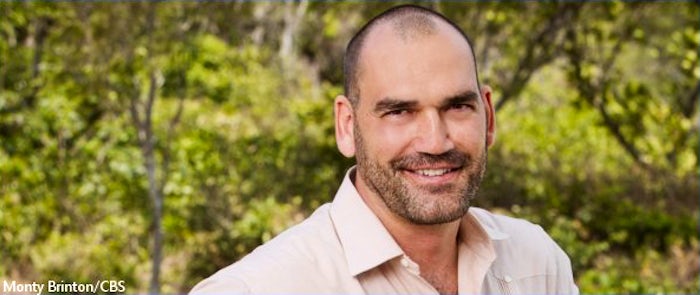Survivor: Kaoh Rong castoff Scot Pollard believes you are a bully when you act with certain motivations -- and because those motivations didn't apply to him during Survivor, he's separating himself from that label.
|
ADVERTISEMENT
|
Neal Gottlieb said there was definitely a "bully mentality" at camp when he was still in the game, explaining that castaways were fearful of being questioned or criticized -- and ultimately deemed untrustworthy or shady -- for simply getting up to go to the bathroom or do a chore.
And just last week, Debbie Wanner said Scot and Jason were bullies beyond anything Survivor has ever seen before in its 32-season history.
The pair's behavior only worsened when their former Brawn ally Cydney Gillon flipped on them and joined a girls' alliance. Scot, Jason and Tai Trang therefore sabotaged the girls' ability to eat by putting out their fires and hiding the tribe's machete and ax.
However, some viewers might argue Scot and Jason were just tough players, dealing with the conditions and circumstances of a high-stress game that can be emotionally, physically and mentally taxing.
During an exclusive interview with Reality TV World on Thursday, we asked Scot about the "bully" accusations. Below is his response.
They've shown Jason and I being bullies or dominant characters, villains, however you want to say it... [Were we] hard characters that played hard, villains? Most certainly. Bullying, I think, is a term that's been used too liberally in this situation.
Bullies require a victim. Bullies are people that are trying to take advantage of people and put them down or hurt them or make them feel horrible about themselves. To me that's what a bully is. A bully is someone who gets satisfaction out of hurting other people. We're playing a game for a million dollars, and we played hard. I played hard.
Are there events where I go, 'Man, that looked really mean...?' Yeah. But it's in the context of a game where being mean is a crucial component of success. You could look at what [Tai Trang] did last night to me being very mean. And for the record, Tai joined in without telling us -- jumped up in the middle of the night and poured water on the fire. The social-media reaction to him is crickets.
So, I think it's easier to portray Jason or myself as a villain much more than it is easy to portray, say, [Julia Sokolowski] as a villain or [Michele Fitzgerald] as a villain because their personalities just aren't as strong and they're not big, giant guys with tattoos.
So, you know, looking back at casting, you have to kind of think of, 'Alright, who are we going to make the heroes? Who are we going to make the villains?' Well, it's pretty easy to make the big loud guys covered in tattoos the villains. Because everybody has emotions, everybody has good days and bad days, and within those days, they have emotions.
So, you slice all that up and you think, 'What's the best chance of having great TV? Jason and Scot are pretty good at being strong characters that people can dislike, and even if somebody were to join in with them' -- like I said about Tai -- 'he's still not getting that moniker even though he's doing the same thing.' He was just quieter about it and more duplicitous about it, which I guess is what people want to see.FOLLOW REALITY TV WORLD ON THE ALL-NEW GOOGLE NEWS!
Reality TV World is now available on the all-new Google News app and website. Click here to visit our Google News page, and then click FOLLOW to add us as a news source!
They don't want to see somebody be straightforward about it, like, 'I'm going to do this! And this is how I am going to try to win the game.' And I stayed loyal to everyone that I joined in an alliance with, and everyone that I joined in an alliance with betrayed me. I made it far playing the game my way, maybe not everybody else's way, and I have no regrets about that.
About The Author: Elizabeth Kwiatkowski




